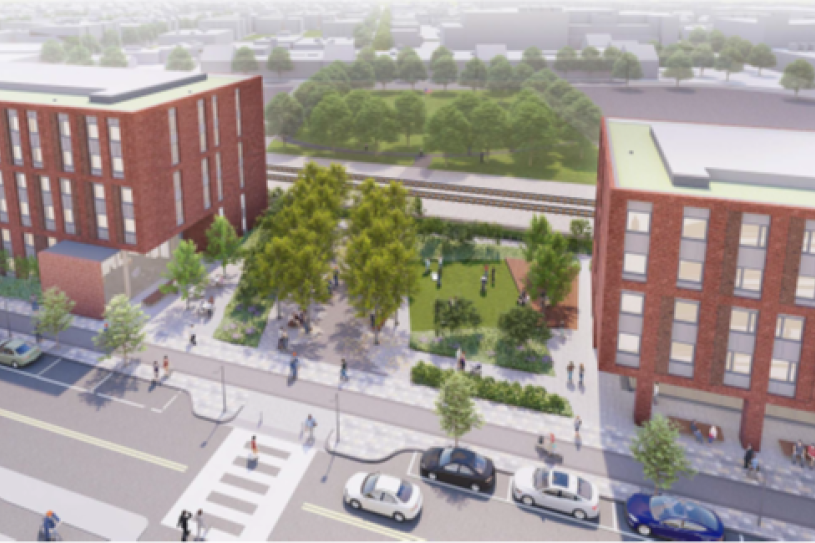MIT Engages 3rd Party Developer to Bring More Graduate Housing to MIT Campus

Cambridge was recently ranked as one of the most expensive communities for renters in Massachusetts and the competition for available units is high. A large percentage of MIT graduate students live in off-campus housing and MIT has been working hard over the past decade to develop and construct more on-campus housing options for graduate students. In 2017, as part of MIT’s commitments related to the redevelopment of the Volpe Transportation Center Site, MIT agreed to create additional housing for graduate students on the MIT campus. The Graduate Junction development (Buildings W87 and W88), scheduled for completion in summer 2024, will meet that commitment.
American Campus Communities (ACC) is the nation’s largest developer, owner and manager of student housing communities. ACC was founded in 1993 and they have previously developed projects at Northeastern University, Princeton University and Emory University. In March, 2020, MIT engaged ACC to develop and construct a graduate student housing project at the western end of Vassar Street on the site of W89 and the old West Lot parking area. Originally envisioned as a 552 bed project, the project was expanded to consist of a 676 bed, apartment-style residence, including 351 apartments comprised of studio, 1-bedroom, 2-bedroom and 4-bedroom floorplans in two separate buildings. MIT and ACC initially entered into an Interim Development Agreement in March, 2020, followed by a Development Agreement in June, 2021, a Development and Construction Management Services Agreement in January, 2022 and a Management Agreement in October, 2023. Under this suite of agreements, ACC was engaged as the developer and construction manager for the Project, as well as the property manager for the leasing, management and operation of the Project once complete. Graduate Junction will be the first residence housing project at MIT developed and managed by a third-party company.
Graduate Junction is designed to achieve LEED platinum certification and the project will include solar arrays, green roofs, terraces and gardens. A key feature of the project is the publicly accessible central plaza between the two buildings. The plaza connects the existing rail crossing to Fort Washington Park and the existing Vassar Street crosswalk, establishing a strong pedestrian and cyclist route from the river and playing fields, through to the historic park. The two residence buildings will provide lobbies, lounges, study spaces and other resident amenities, including ample indoor bike storage provided in secure rooms within the buildings. The buildings will be fully accessible and the siting of the project encourages multi-modal transportation in addition to public transit. Pedestrian ways surrounding the project are designed to facilitate connections to campus and out to the surrounding neighborhood.
OGC worked closely with the Office of Campus Planning, the Department of Facilities and the Division of Student Life on this transaction.




